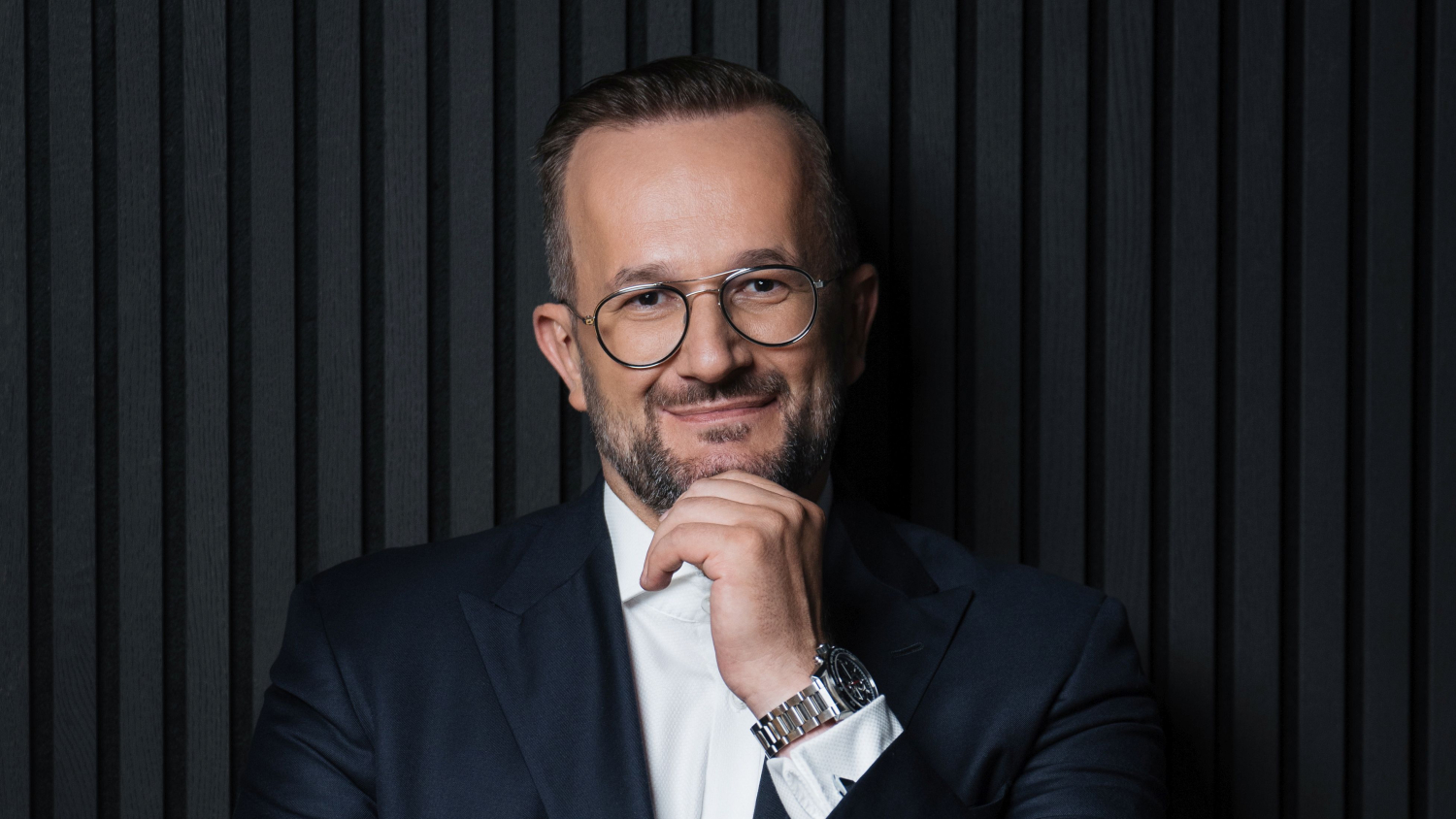
Krystian Modrzejewski, Chief Investment Officer at Newgate Investment, talked to Property Forum about the recent investment attractiveness of retail parks in Poland, their role as community integration points and the saturation of the retail markets in large Polish cities.
We are talking after you purchased a retail park in Bielsko Biała from Redkom Development. Please tell us why you decided to buy this particular facility.
In recent weeks, the purchase transaction of a retail park being built in Bielsko Biała was finalized, where Kaufland, Woolworth, Martes Sport, TEDi, Sinsay, Jysk, Rossmann, and KiK, as well as several other tenants, will open their stores. The park is being built in a traditionally commercial location that has been functioning in the minds of consumers as a commercial destination for many years. Previously, a TESCO hypermarket operated in this location. The new facility will be called Comfy Park Bielik and will be the largest retail park in the region. The key when buying retail parks is their high value for tenants and local communities. In a word, the location, dominant position in the area, and the needs and purchasing power of local consumers are the key.

Krystian Modrzejewski
Chief Investment Officer
Newgate Investment
Retail parks are one of the hottest topics in the Polish commercial real estate investment market. What is the reason for such a huge increase in the popularity of these formats in recent years? Are the restrictions caused by the pandemic responsible for the increase in the supply of retail space located in smaller retail formats?
The pandemic has accelerated trends that have been visible on the market for a long time. The retail space market in the largest Polish cities has been saturated with large retail formats for years, so retail chains are naturally looking for opportunities to increase their market shares to meet the needs of various consumer groups. We observe an intensification of sales activities in online channels, as well as a tendency to locate sales points as close as possible to customers' places of residence. This also applies to the markets of large cities, where selected retail chains, previously present only in large shopping malls, have prepared and implemented formats adapted, among others, to premises available on the ground floors of multi-family buildings or office buildings. Retail parks and other smaller formats such as free-standing retail pavilions are also an element of this diversification.
Parks often provide the only modern spaces that meet the requirements of international brands in regions. Thanks to them, the offer of chain tenants reaches the inhabitants of smaller, district towns or the outskirts of large urban centres, enabling convenient, basic purchases of food, clothing, or home furnishings. Retail parks also act as local community integration points. The large flow of people also enables the implementation of a number of other functions, which are fewer in small towns. Next to such facilities, fast food restaurants are also being built, and there are often gas stations nearby. Customers can also use ATMs and other amenities that are rare in small towns: drugstores, gastronomic offers in the form of food trucks, and other attractions.
In a word, the popularity of retail parks results from their natural features and the needs of local inhabitants who want to make quick and convenient purchases near their homes and do not necessarily have the opportunity to spend many hours travelling to large shopping facilities. Retail chains follow consumers' demands, and investors enable them to do so by providing modern infrastructure.
There are more and more retail parks. According to data provided by JLL, over 560,000 sqm of modern retail space were put into operation in Poland in 2023 of which approximately 51% was built in cities with fewer than 100,000 inhabitants. Retail parks currently account for approximately 17% of the total volume of modern retail space located in Poland. Another 430,000 sqm of retail spaces remain under construction. 75% of these spaces are created in the form of parks and other, smaller commercial formats. Aren't you afraid that this is too much and that the market will soon be oversaturated?
There is no such threat in the foreseeable future, for at least several reasons. Firstly, there are still many commercially excluded locations in Poland. They lack high-quality, modern retail space. Retail parks also offer flexible formats, always tailored to a given location. Investments of this type are implemented in various configurations depending on the needs of tenants. In one location, the so-called anchor will be a large store such as Lidl or ALDI. In others, customers will be attracted by, for example, restaurants of recognized chain operators, such as McDonald's or KFC, and in still others, a combination of a retail park with a gas station and a package of services such as a hairdressing salon, a fitness club or a bank branch.
You mentioned attractions for residents and gastronomy. Can retail parks also become places integrating local communities? Places where residents can not only shop but also spend their free time?
I believe that in some locations it is even indispensable. Many places lack not only commercial space but also social space. There are locations that are almost completely devoid of recreational spaces adapted to the requirements of all age groups. In such locations, the creation of developed green areas with small infrastructure next to the park, enabling residents to spend time and local organizations to organize cultural or entertainment events, may prove to be a bull's-eye.
And do retail parks also have a chance to appear in the smallest towns? Where is the profitability limit of such an investment?
We place investments or advise our investors in the context of location, taking into account a number of conditions: from the absorption capacity of a given market, or more precisely the number of inhabitants, their purchasing power to the efficiency of communication infrastructure. The policy of local authorities and their long-term investment plans are also important, covering issues such as the efficiency of the local and interregional transport network, including road infrastructure and public transport, which helps to eliminate transport exclusions. Retail parks can be built in places that, due to their potential, will provide investors with the expected return on capital.
Newgate Investment has been expanding its portfolio for over 10 years. Recently, it opened Comfy Park in Malbork and rebuilt retail facilities from its portfolio in Białystok and Sieradz, among other things, increasing the leasable area. Currently, the company's Polish portfolio includes 31 properties with a total rentable area of over 140,000 sqm. When can we expect further investments?
Without anticipating the facts, I can say that we are in the final stage of acquiring additional properties for our portfolio. In the coming months, we will inform you about the transactions we are currently working on. At the same time, we constantly care about the value of our properties by investing in both infrastructure and constant modernization of our facilities. There will be electric chargers in the parking lots at all our retail parks. Additionally, the energy used in our properties will come from 100% renewable sources - we have joined the Energia 2051 program introduced by Polenergia, which guarantees that 100% of the energy used in our buildings comes from renewable sources. And this is only the beginning of the changes.



